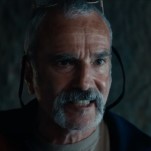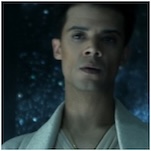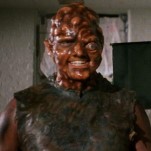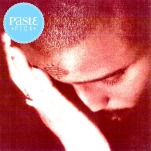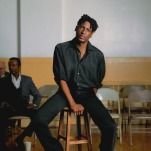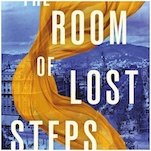The Guts by Roddy Doyle
Who Tamed Jimmy Rabbitte?
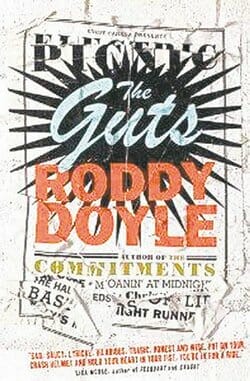
Something in Ireland’s mythic past turns stalwart, stone-faced men to misty-eyed mush. Many contemporary Irish writers manage to resist it, of course, but only Roddy Doyle has wandered into Irish history’s holy of holies—Dublin’s General Post Office during the Easter Rising of 1916—and come out with his vision clear and bitter blue-collar cheek intact. Henry Smart, titular hero of Doyle’s A Star Called Henry, teenage IRA assassin-in-the-making, and a Sweet Sweetback-like outlaw hero of the Irish revolution, assesses the GPO scene and muses, “Day Two of the revolution and I was already bored.”
A terse exchange amid the rioting and looting of the initial days of the revolution cuts even closer to Doyle’s essential take on colonial Ireland and whatever came after it: “That’s Irish property!” remarks one indignant Irishman. The battle-cry reply: “It’ll still be Irish after it’s stolen!”
Doyle has never cared a whit for any legend-steeped notion of Ireland’s ancient kings and queens, gauzy tales of pre-colonial Celtic glory, or delusional visions of an independent Ireland as some sort of Home Rule/Rome Rule Elysium; nor has he wasted a minute reveling in the modern Irish state’s liberation from the shackles of British dominance. To Doyle, the history of Ireland is the history of class struggle, and never more so than in post-colonial Ireland, after the Irish working class won Ireland’s freedom and the Irish middle class stole it right back (and handed off most of it to priests). As Jimmy Rabbitte Jr. remarks in Doyle’s new book, The Guts, describing his country’s prompt descent into post-colonial quagmire, “Ireland in 1932 was a miserable place…Kids with no shoes, hunger, bad housin’, the Church supervisin’ everythin’. But the official picture was different. Happy peasants, glad to be rid of the Brits.”
Though not exactly the message of The Guts, Jimmy’s working-class indignation connects it to A Star Called Henry and all of Doyle’s best work. That same attitude aligns Jimmy and Henry with former rapper Flavor Flav in his first (pre-reality TV) incarnation as the razor-sharp comic side of legendary hip-hop outfit Public Enemy: “I got a right to be hostile.”
Even in occasional polemicist mode, Doyle characters have usually come off more like the wisecracking Flavor Flav than his bandmate Chuck D (who delivered the stentorian side of the same message); and the Irish novelist has drawn connections between Irish and African-American outrage right from the outset.
In The Guts, Doyle delivers the first true sequel to his first novel, The Commitments, published in 1987 (and turned into a hit film four years later), about a self-mythologizing 21-year-old born impresario named Jimmy Rabbitte Jr., with a world-class chip on his shoulder and high principles in low places and everywhere else. Jimmy assembles a Stax-style southern soul band from the ranks of his own North Dublin neighborhood. Explaining to his friends that the Irish are the blacks of Europe, Dubliners are the blacks of Ireland, and Northsiders are the blacks of Dublin, and that soul is the music of sex and politics and the proletariat, he proclaims to his Barrytown, Dublin mates, “Your music should be abou’ where you’re from an’ the sort o’ people yeh come from. Say it once, say it loud, I’m black an’ I’m proud.”
Grandstanding hyperbole aside (and in Doyle’s hands, Jimmy Jr.’s soapbox moments divide equally into comic bluster and iconic truth), Doyle and his characters understand some crucial things about soul music that, frankly, tended to elude most of the white hippies who tried to play it in its heyday: Anything but unfettered, sloppy self-expression, as Commitments trumpeter Joey “The Lips” Fagan explains, “Soul music has corners.”
The Commitments of novel and film coalesced for a few magnificent, soulful and comic moments, brawled constantly, imploded spectacularly at the end of the story, and then went their separate ways. Most Doyle fans probably know that Jimmy Rabbitte Jr.’s father, Jimmy Sr., returned as the protagonist of two subsequent novels, The Snapper and The Van, as a much deeper character than the marginal, one-dimensional Elvis fanatic who appears sporadically in The Commitments. (In a wonderfully unexpected, comical and heart-warming transformation, Jimmy Sr. quietly undergoes a lovely, private, non-destabilizing mid-life sexual awakening as he chews over his daughter’s unexpected teen pregnancy in The Snapper. He pores over prenatal care books, cluelessly asks his daughter biologically invasive questions about her pregnancy as he absorbs the books’ contents, musing over whether you’d properly think of sex as “riding” when it involves your wife, and so forth. Imagine Archie Bunker embracing the same inner monologue and the world becomes an oddly funnier and nicer place.)
Most of The Van takes place on the unforgettable day in June 1990 when Ireland’s first World Cup team fought to a draw against the British squad, and the entire island descended into blissful madness for a day that, according to Jimmy Jr. 20 years later in The Guts, birthed a new, EU-ready, triumphalist Ireland. That single glorious day, Jimmy Jr. theorizes, predicated all the fiscal overreaching and hubris of the Celtic Tiger, the explosion of economic prosperity that briefly made Ireland a country that accumulated immigrants rather than bleeding émigrés. Things then declined precipitously and dumped the country into depression again.
It’s there that The Guts begins, in 2012 Barrytown, with barely an echo of the Celtic Tiger’s brief roar remaining and Ireland deep in debt, with little to show for the wild ride of its last two decades but a deep distrust of priests and a surprisingly varied new ethnic makeup. (Nigerians and Romanians, not the Northsiders, are the blacks of Ireland now.) The Guts is Jimmy Jr.’s story, but in a welcome change from the first three Rabbitte books (now known as The Barrytown Trilogy) we actually see a good bit of Jimmy Sr. too. In the past they’ve mostly stayed out of each other’s books (The Commitments was Jr.’s; The Snapper and The Van were Sr.’s.).
Like all the Barrytown books (The Commitments and The Snapper especially), dialogue makes up 90 percent of The Guts—most irresistibly, the interplay between Sr. and Jr. Although the book moves on to great places after the opening scene of the Rabbitte men in the pub, you never want it to end. A Star Called Henry still stands as Doyle’s finest hour, a sustained high-wire act that set a seemingly impossible standard for the crackling vitality of story, characterizations and dialogue; he somehow maintained that energy and intensity from the first page to the last. But Doyle never found that level again even in the best moments of the two Henry Smart sequels, Oh Play That Thing and The Dead Republic. Doyle often seemed at a loss as to where to take Henry next. A Star Called Henry unfolds like the secret history of Ireland—a gritty, grimy, utterly necessary corrective to everything you’ve read before. (As well as a whale of a tale, with a hell of a hero.) But Henry Smart’s later adventures often feel, if not insubstantial, then inessential.
-

-

-

-

-

-

-

-

-

-

-

-

-

-

-

-

-

-

-

-

-

-

-

-

-

-

-

-

-

-

-

-

-

-

-

-

-

-

-

-



